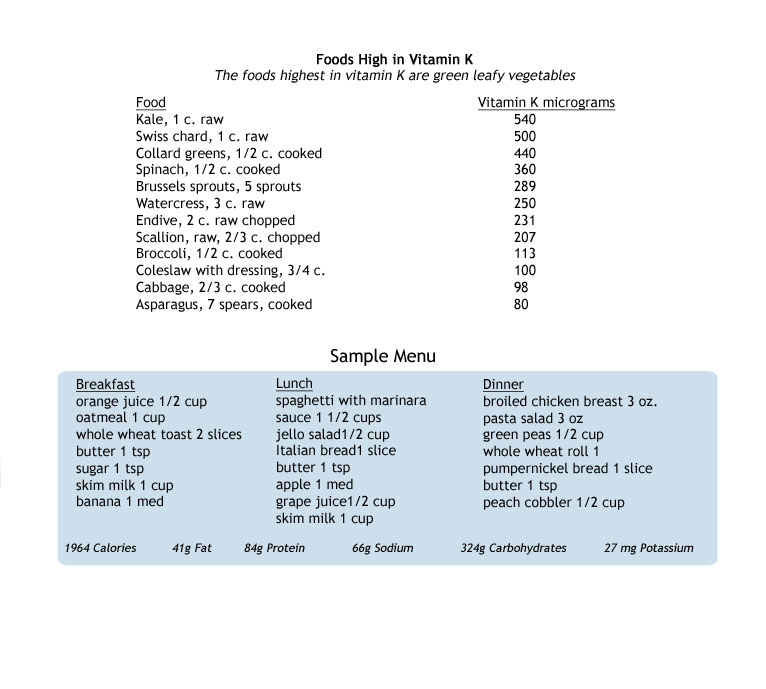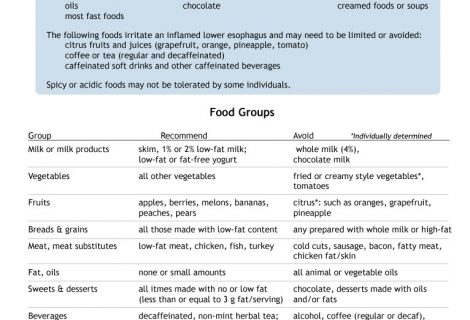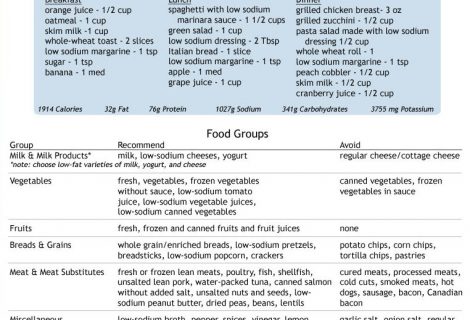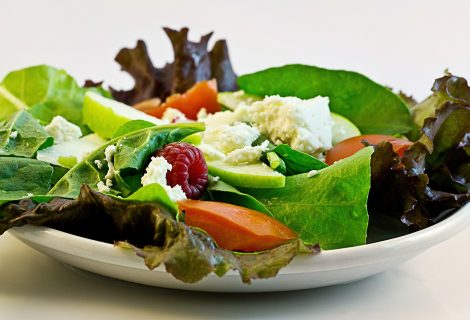Vitamin K Restricted Diet Ideas
Purpose
Vitamin K is essential for the proper formation of blood clots in the body. The K in vitamin K, which was discovered by a Danish scientist, comes from the Danish word “koagulering” which means clotting. The liver makes a protein called prothrombin, which is a vital link in the coagulation process. Vitamin K is the forerunner of prothrombin and is used by the liver to make prothrombin. There are a number of medical conditions in which prevention of excessive clotting within the body is desirable. Blood clots within the heart, arteries and veins can lead to heart attacks, strokes and phlebitis. One of the drugs used to prevent clout formation is a blood thinner called warfarin (trade name Coumadin). Warfarin interferes with the formation of prothrombin in the liver. As everyone who takes warfarin knows, they must get a blood test called the prophet prothrombin time (pro-time or P.T.) to be sure of the correct dose of warfarin. Too much warfarin leads to unwanted bleeding. Too little means that clotting is not prevented.
So why is vitamin K in the diet important to a patient on warfarin therapy? Simply because if too much vitamin K is eaten, it interferes with the action of warfarin, thus lowering the PT and making the blood more likely to clot.
Nutrition Facts
The recommended dietary allowance for vitamin K is 65 micrograms for women and 80 micrograms for men. Some of the vitamin K the body uses is produced by bacteria in the digestive tract but most comes from food. With proper food selection, a vitamin K regulated diet can be varied and adequate in all nutrients.
Special Considerations
While taking anticoagulant medications, it is not necessary to avoid vitamin K containing foods all together. Just keep consumption of vitamin K fairly consistent, rather than consuming a lot one day and very little the next. This will allow the medication to work and keep blood clotting function consistent. Regular blood tests to monitor blood clotting time for potential dangerous fluctuations is important. Keeping a food diary can be very helpful in monitoring the potential interaction between diet and medication. If the PT becomes too low check with the physician and keep a record of your own food intake. It may be you’re eating too many vitamin K containing foods.





